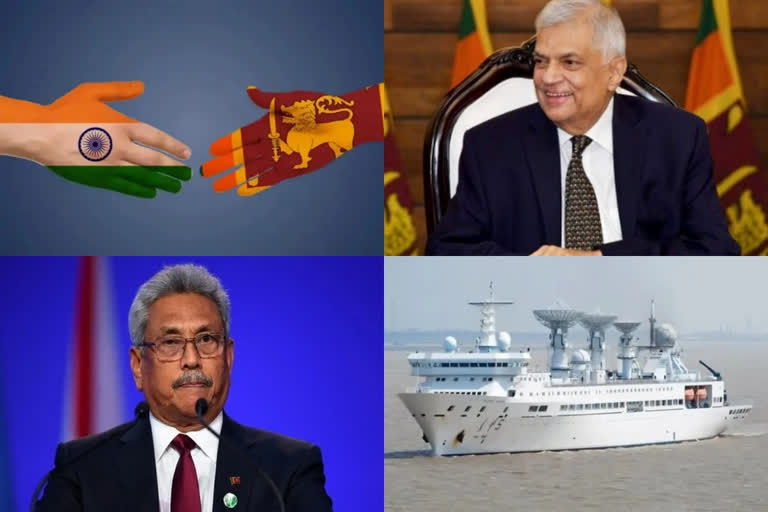Colombo:Sri Lanka was hit by an unprecedented financial crisis in 2022 that also sparked political turmoil in the island nation that led to the ouster of the all-powerful Rajapaksa family for now. The resignations by President Gotabaya Rajapaksa in July and his elder brother Prime Minister Mahinda Rajapaksa in May amidst massive anti-government protests subsided with the formation of a government led by their ally Ranil Wickremesinghe, who is now tasked with stabilising the economy and restoring the financial health of the economy, already hit badly by the pandemic.
From April to July, chaos reigned on the island nation with miles-long queues forming at fuel stations and irate residents coming out in thousands blocking roads with empty cooking gas cylinders. Over 20 people died in the serpentine fuel queues due to exhaustion in long lines and in certain cases the waiting period extending over 72 hours.
In April, President Gotabaya Rajapaksa fired his brother and Finance Minister Basil Rajapaksa when the country started to feel the heat of the looming economic turmoil. The Sri Lankan government in May declared a debt default on over USD 51 billion in the foreign loan - a first in the country's history. Extending a much-needed lifeline to a neighbour in need, India gave financial assistance of nearly USD 4 billion to Colombo during the year.
In January, India announced a USD 900 million loan to Sri Lanka to build up its depleted foreign reserves as the financial crisis began to unfold. Later, it offered a USD 500 million credit line to Sri Lanka to fund the country's fuel purchases. The credit line was later expanded to USD 700 million due to the sheer gravity of the situation. A chronic shortage of foreign currency and soaring inflation have led to a severe shortage of medicines, fuel, and other essentials.
The debt default came as public protests raged in April over the then President Gotabaya Rajapaksa's government's mishandling of the country's economic crisis, the worst since its independence in 1948. Hundreds of thousands of people from all walks of life and all communities took part in the largely peaceful protests demanding the resignation of President Rajapaksa and his elder brother Mahinda Rajapaksa, the then-prime minister who quit in May.
External Affairs Minister S Jaishankar was the first foreign dignitary to visit the island in the midst of unprecedented chaos. "Sri Lanka is our closest neighbour. It is our pleasure to extend our goodwill to help you, people," Jaishankar said in March. India also asked the International Monetary Fund (IMF) to urgently provide financial assistance to Sri Lanka. Gotabaya Rajapaksa's government was under scrutiny for ignoring the option of going to the IMF when it seemed that the nation's pandemic-hit economy needed a bailout.
